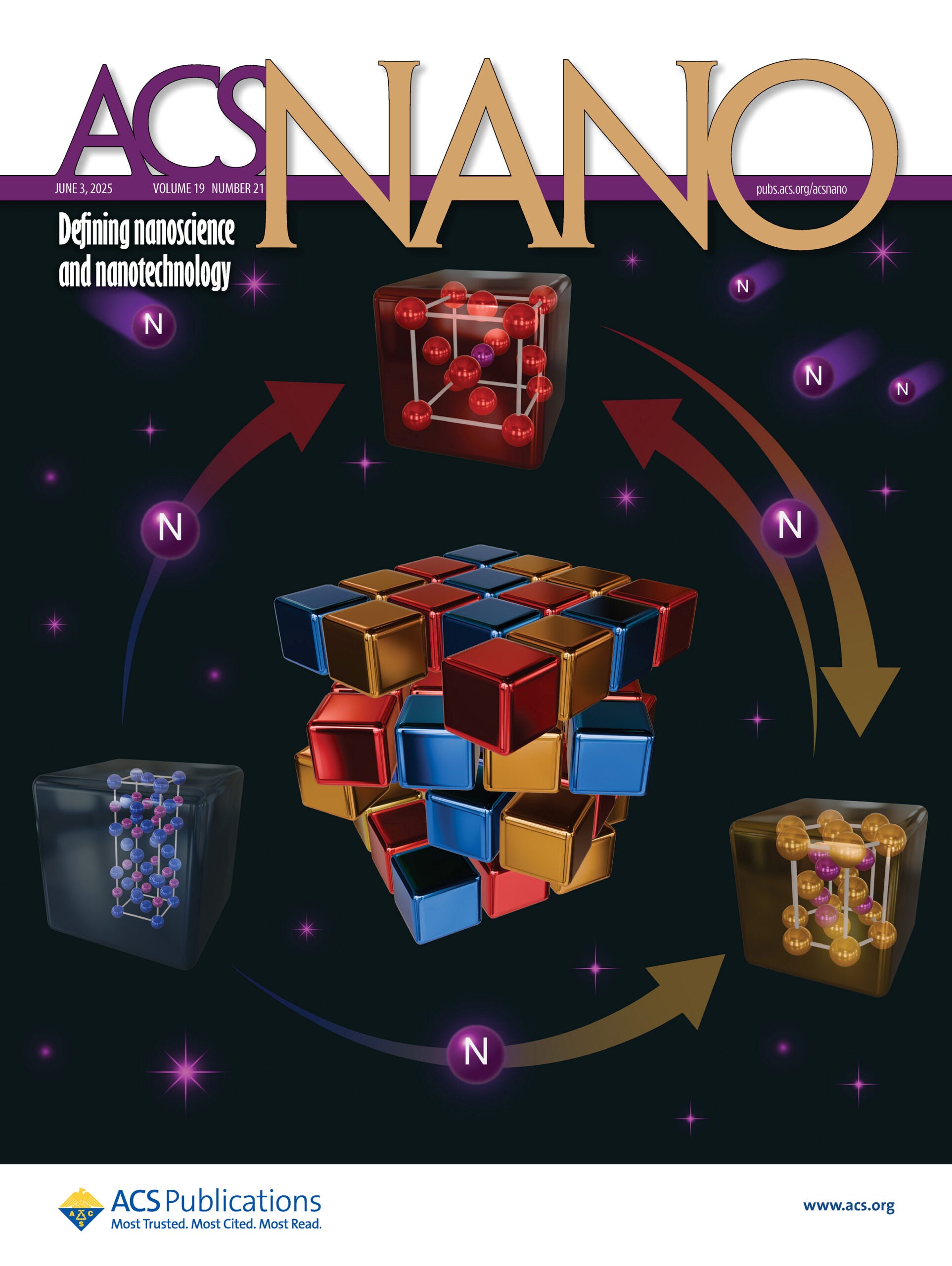Nitrogen on the Move: Controlling Magnetism through Ionic Migration
Posted in News Story

A team of researchers led by postdoctoral researcher Dr. Zhijie (Hugh) Chen in Prof. Kai Liu’s group have demonstrated a novel all-nitride magneto-ionic system with tunable magnetic properties through nitrogen ionic motion. Their recent study, published in ACS Nano and featured on the journal cover, offers a promising pathway to reduce energy consumption in magnetic memory and storage devices, which is an urgent need as generative artificial intelligence drives soaring demand for both energy and data storage.
Magneto-ionics refers to the control of magnetic properties via ionic migrations, typically driven by voltage. To date, all magneto-ionic systems have been heterogeneous, consisting of dissimilar materials – a functional layer whose magnetic characteristics are being modulated and an electrolyte, either in solid or liquid form. In this work, Dr. Chen and coworkers present a novel type of single-component solid-state platform composed exclusively of manganese nitrides (Mn4N, Mn2N, and Mn3N2), each exhibiting distinct magnetic behaviors, from ferrimagnetic to antiferromagnetic.
“What makes our system interesting is that we can reconfigure the magnetic states simply by changing nitrogen concentrations,” explained Dr. Chen, “We also demonstrated three different methods to drive nitrogen migration, by controlling synthesis conditions, applying thermal annealing and using voltage bias”.
The gating studies were performed together with Dr. Yijing Liu at the Georgetown Physics Department. The nitrogen ionic migration was directly probed by high resolution scanning transmission electron microscopy studies in collaboration with Dr. Chen Liu and Prof. Xixiang Zhang at KAUST, and confirmed by depth-resolved polarized neutron reflectometry studies by Drs. Christopher J. Jensen, Alexander J. Grutter, and Julie A. Borchers at the NIST Center for Neutron Research and Drs. Christy Kinane and Andrew Caruana at the UK-ISIS Neutron Facility.
One key advantage of this platform is its compatibility with standard semiconductor processing. Importantly, the all-nitride system is made up of all earth-abundant elements, avoiding reliance on rare-earth or heavy metals that are expensive and vulnerable to supply chain disruptions.
“This study also illustrates the exciting possibilities for magnetic-field immunity,” said Prof. Liu. “For instance, information can be written in a ferrimagnetic state and securely stored in an antiferromagnetic state, which exhibits no stray field, protecting data from external magnetic interference.”
The study was supported by the National Science Foundation. A patent application has been filed.
See here for a report by the UK-ISIS Neutron and Muon Source.
